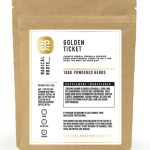Polycystic Ovary Syndrome (PCOS) is a condition that affects millions of women worldwide. It’s an endocrine disorder characterized by hormonal imbalances, irregular menstrual cycles, and, as the name suggests, multiple cysts on the ovaries.
While Western medicine typically treats PCOS with hormonal therapies and lifestyle changes, Chinese Medicine offers a unique perspective and alternative ways to manage and even mitigate the condition.
Understanding PCOS from a Chinese Medicine Perspective
Chinese medicine holistically perceives health issues, focusing on the balance and flow of the body’s vital energy, known as Qi (Chee). PCOS, through the lens of Chinese medicine, is considered a condition arising from Qi stagnation, particularly in the Liver meridian, and an imbalance of Yin and Yang in the body.
Liver Qi Stagnation is often linked to emotional stress, a common trigger of PCOS symptoms. Stress leads to imbalanced Qi flow, resulting in various symptoms including menstrual irregularities. Yin and Yang imbalance, on the other hand, corresponds to the hormonal imbalances seen in PCOS. Yin is associated with female hormones (such as estrogen) and Yang with male hormones (like androgens). In PCOS, the balance tilts towards Yang, manifesting as elevated androgens (male hormones), a key characteristic of PCOS.
Chinese Medicine Approaches to Manage PCOS
Acupuncture
Acupuncture, an essential part of Traditional Chinese Medicine (TCM), involves the insertion of fine needles at specific meridian points to restore Qi balance. In the context of PCOS, acupuncture can be beneficial. A 2017 study showed that acupuncture may help reduce hyperandrogenism and improve menstrual frequency in women with PCOS (1).
Chinese Herbal Medicine
Chinese Herbal Medicine often complements acupuncture in treating PCOS. An important herbal formula used for this condition is the “Tiaojing Cuyun Decoction”. This formula, consisting of herbs like Chinese angelica (Dang Gui), peony (Bai Shao), and licorice (Gan Cao), helps to regulate menstrual cycles and support reproductive health. A study published in the “Journal of Alternative and Complementary Medicine” (2018) demonstrated that this decoction significantly improved ovulation rates and hormonal imbalances in PCOS patients (2).
Golden Ticket
Created by our founder, Chloe, who knew that she would never skip her cup of coffee! Simply add the coffee, smoothies, or any recipe and support our busy bodies all day.
Topical Relief Salve
In a league of its own in the topical space. This jar contains potent anti-inflammatory herbs in addition to a powerful dose of full spectrum hemp. Just apply to areas of discomfort for long term relief.
Role of Functional Medicine in PCOS
Functional medicine views the body as an interconnected system, focusing on identifying the root causes of diseases rather than just addressing symptoms. In the context of PCOS, functional medicine practitioners may recommend dietary changes, physical activity, stress management techniques, and various supplements.
Inositol
Inositol, especially in its Myo and D-Chiro forms, is often recommended for PCOS. Multiple studies, including one published in the “International Journal of Endocrinology” (2016), found that inositol improved insulin resistance, hormonal imbalances, and fertility in PCOS patients (3).
Omega-3 Fatty Acids
Omega-3 fatty acids are vital for overall health and particularly beneficial for hormonal balance. Research in the “Journal of Clinical Endocrinology & Metabolism” (2013) found that omega-3 supplementation significantly decreased testosterone levels and regulated menstrual cycles in women with PCOS (4).
Vitamin D
Vitamin D deficiency is commonly found in women with PCOS. Supplementing with vitamin D can improve metabolic parameters and may help regulate menstrual cycles, as suggested by a study published in “Scientific Reports” (2015) (5).
Conclusion
PCOS is a complex disorder, but a combined approach using Chinese Medicine and functional medicine can offer a comprehensive strategy to manage it. These methods empower women to actively participate in their healing process, leading to a more balanced, healthier state of being. As always, it is advisable to consult a professional before starting any new treatment or supplement regimen.
References
1. Johansson, J., et al. (2017). Acupuncture for polycystic ovarian syndrome. Cochrane Database of Systematic Reviews. DOI: 10.1002/14651858.CD007689.pub3.
2. Feng, Y., et al. (2018). Effects of Chinese Medicine Tiaojing Cuyun Decoction on patients with polycystic ovary syndrome: A randomized controlled trial. Journal of Alternative and Complementary Medicine. DOI: 10.1089/acm.2018.0008.
3. Facchinetti, F., et al. (2016). Results from the International Consensus Conference on Myo-inositol and d-chiro-inositol in Obstetrics and Gynecology: the link between metabolic syndrome and PCOS. International Journal of Endocrinology. DOI: 10.1155/2016/9132052.
4. Nadjarzadeh, A., et al. (2013). The effect of omega-3 supplementation on androgen profile and menstrual status in women with polycystic ovary syndrome: A randomized clinical trial. Journal of Clinical Endocrinology & Metabolism. DOI: 10.1210/jc.2012-4015.
5. Irani, M., et al. (2015). The effects of vitamin D supplementation on metabolic profiles and gene expression of insulin and lipid metabolism in infertile polycystic ovary syndrome candidates for in vitro fertilization. Scientific Reports. DOI: 10.1038/srep14634.






